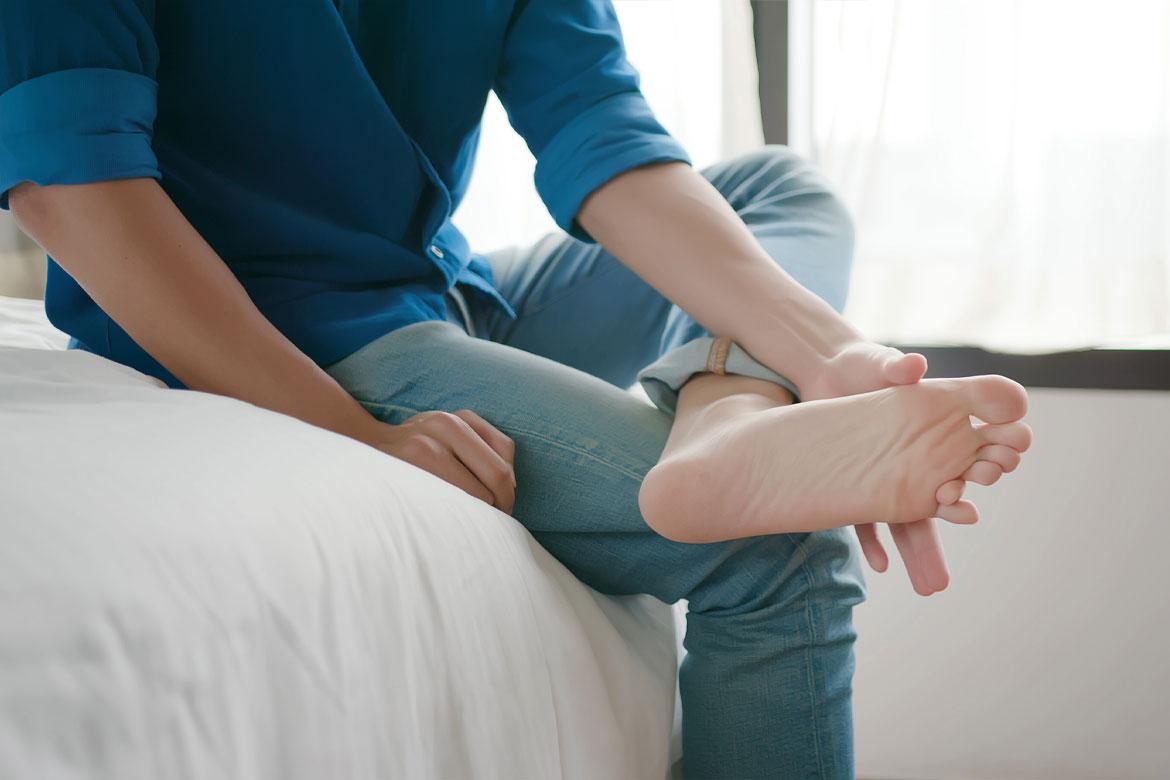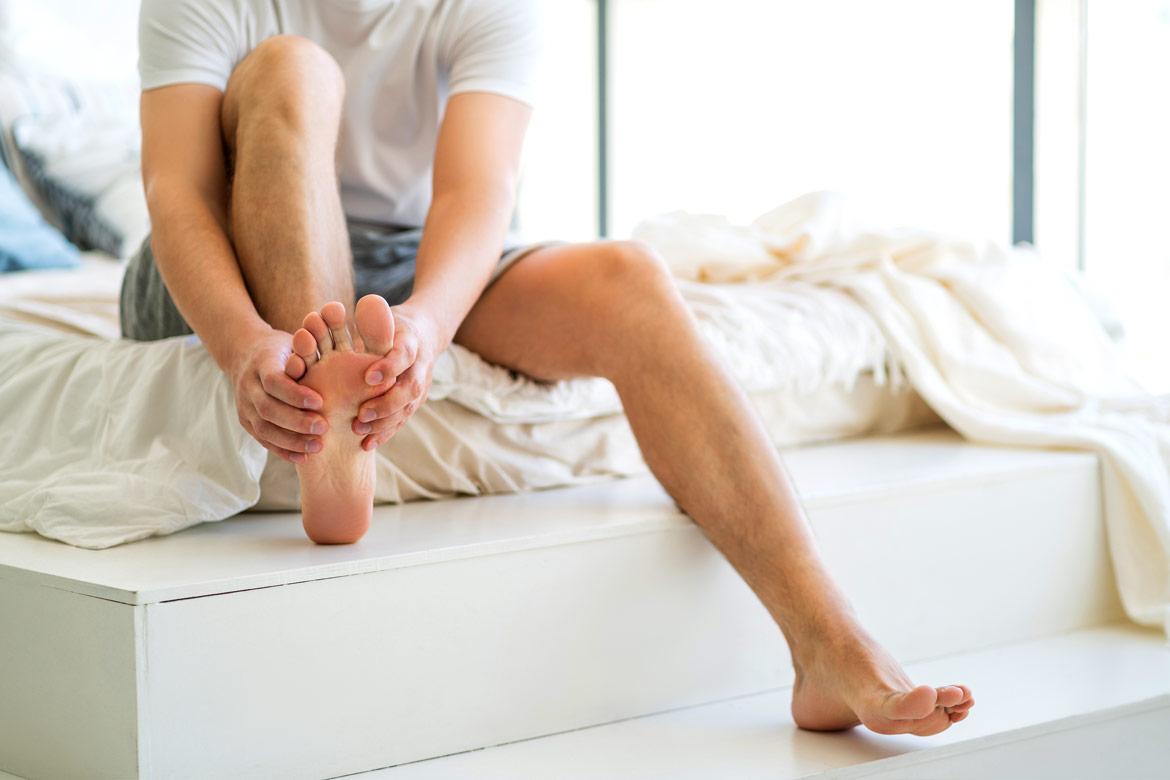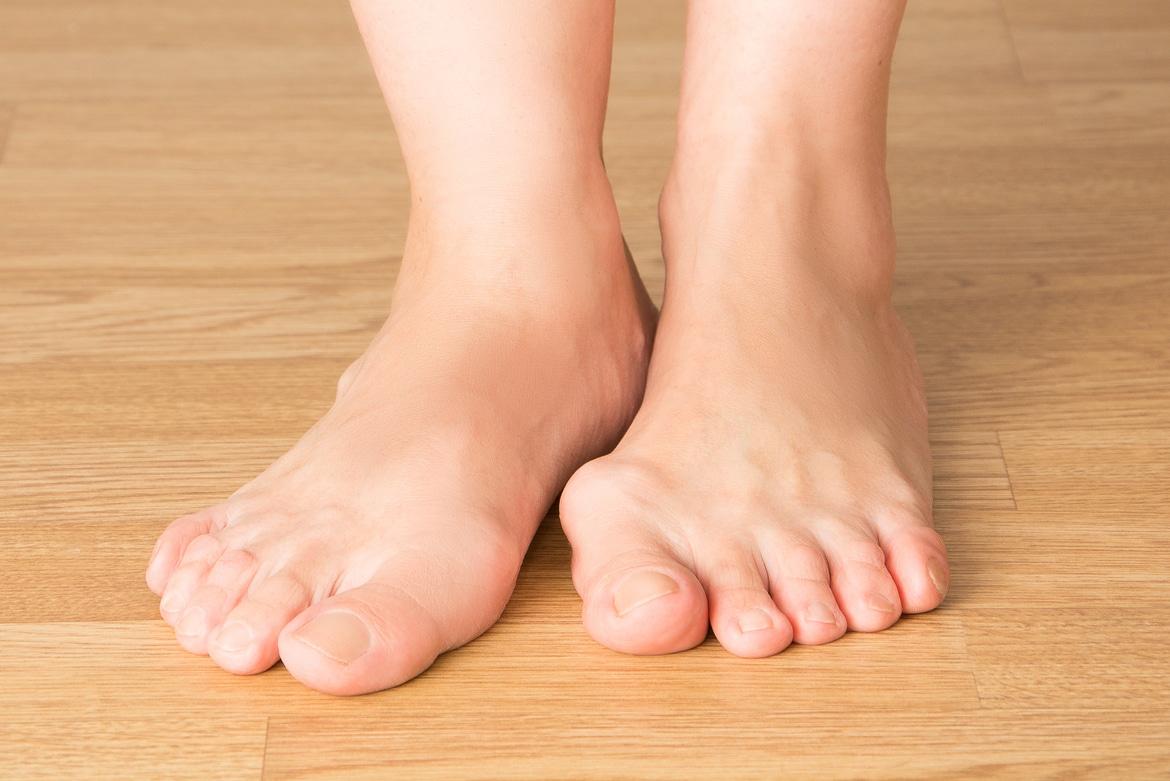-
-
Featured Care Areas

Gout
Frequently asked questions
A: Medications are often the most effective way to:
- Treat and manage gout.
- Prevent flare-ups that can lead to long-lasting damage.
- Lower your overall uric acid levels.
If you would like to manage gout without medications, you can consider implementing the following changes at home:
Diet
Aim for a low-purine diet by limiting or avoiding alcohol, red meat, organ meats, seafood and high-fructose foods. Some studies indicate that cherry juice, as well as vitamin C, have a role to play in decreasing the production of uric acid.
Massage
Massage can help to stimulate metabolism, improve blood circulation to damaged joints and inflamed muscles, and reduce pain. Depending on the severity of your condition, pain relief may be quick or require multiple massages.
Exercise
In general, regular exercise like walking is beneficial for gout as it helps to support a healthy weight. A healthy weight is an important factor in gout prevention.
However, if you are having a gout flare in the foot, toe, ankle or knee, it is best to rest until the gout episode resolves before using the affected body part.
A: If you have gout, you should avoid foods that are high in purines. This includes alcohol, red meat, organ meats, seafood and high-fructose foods.
Regular exercise like walking can help to improve gout, as it helps to support a healthy weight – an important factor in gout prevention. However, if you are having a gout flare in the foot, toe, ankle or knee, it is best to rest until the gout episode resolves before using the affected body part.
A: Gout flare-ups can be prevented and controlled through:
- Diet. A diet low in purines can lower the risk of a flare-up. Avoid or limit alcohol, red meat, organ meats, seafood and high-fructose foods.
- Medications. Medications can help to reduce the risk of a flare by lowering the levels of uric acid in your body, supporting the removal of uric acid and reducing inflammation that may trigger an attack.
- Exercise. Regular exercise is an important lifestyle intervention for gout. Exercise can help you maintain a healthy weight and reduce your risk of gout. However, if you experience a flare-up, it is best to avoid exercise and rest the affected joint.
A: Yes, gout can affect your heel. Other areas it commonly affects include the big toe, foot, ankle, instep and knee.
Less commonly, it may affect joints of the upper limbs such as the fingers or wrists.
A: If you experience a gout flare-up, you may lessen the pain by:
- Taking pain medication and anti-inflammatory medications prescribed by your doctor
- Applying an ice pack to ease the swelling
- Resting and elevating the affected joint
- Drinking plenty of water
Note: Avoid taking aspirin as this can make the flare-up worse.
A: Gout medication does not cause acute gout. These drugs are prescribed to treat gout by lowering levels of uric acid in the blood.
You should not stop taking gout medication during an acute flare of gout as it can affect the efficiency of treatment. It is important to comply with your prescribed medication regime and take your medications regularly to prevent future gout flare-ups.
A: Gout flare-ups usually last for about a week. However, left untreated, they can last for a longer time.
It is important to follow the recommended treatment for a gout attack.
Seek medical help if:
- Your gout pain worsens despite medication
- You have a gout attack and fever
Early management of gout can prevent future attacks and permanent damage to your joints.
A: No, a gout flare-up can be intensely painful, but it will not kill you.
Gout is, however, associated with an increased risk of serious health conditions such as:
A: The likelihood of recurring gout attacks varies from person to person. Some people experience attacks frequently, while others only experience attacks once every few years.
Good management of gout is important to reduce the severity and frequency of attacks. Fewer attacks also mean less damage to the affected joints.
A: Gout is a chronic disease, meaning it does not go away on its own. However, with management, the frequency and severity of attacks can be lowered.
An acute gout attack will typically resolve on its own, even without treatment. Treatment is useful in preventing and lowering the frequency and severity of flares.
This coverage checker is brought to you by Health Insured, an online resource that helps you understand your health coverage in Singapore.
This page has been reviewed by our medical content reviewers.
Need help?
For enquiries, please call
+65 6377 3737
For appointment bookings, please WhatsApp
+65 8111 3777






